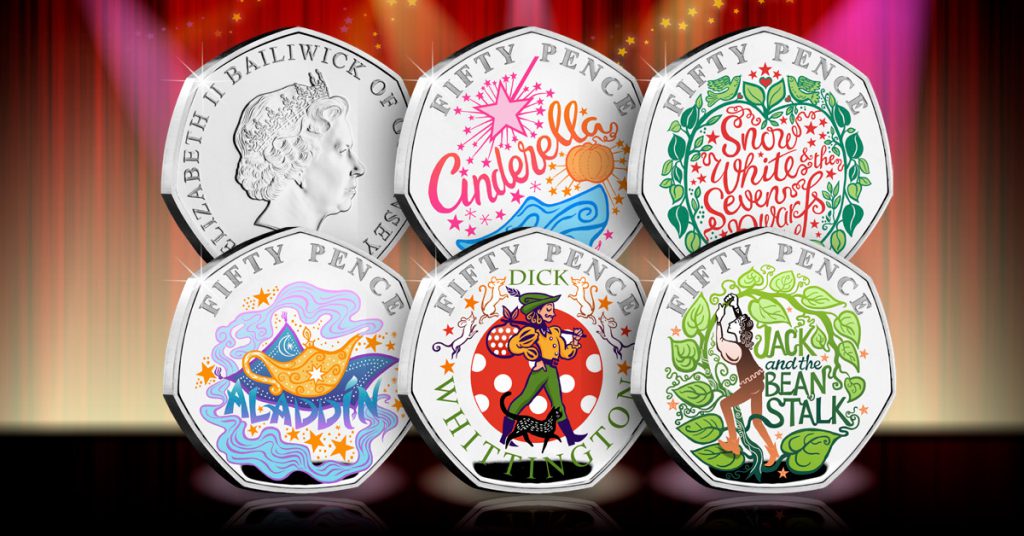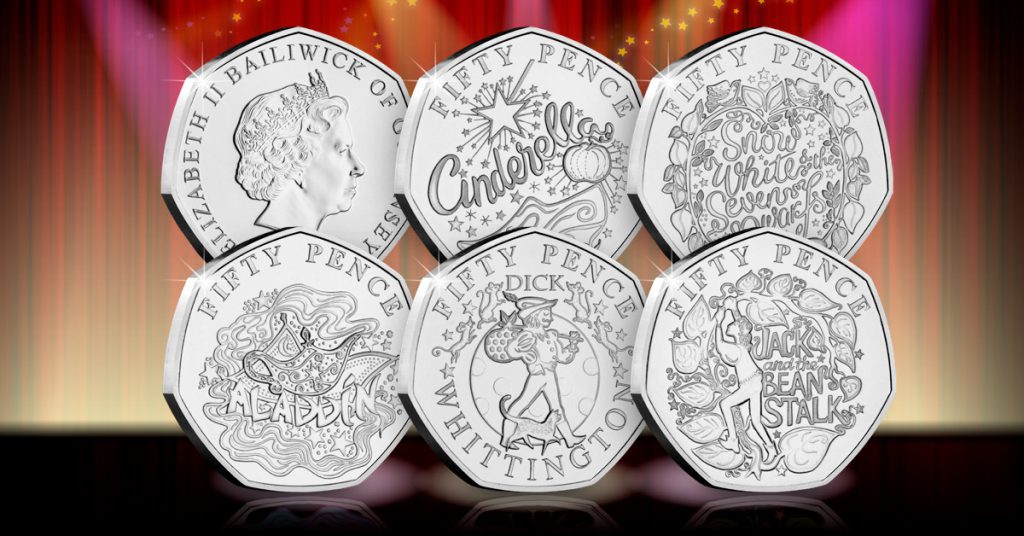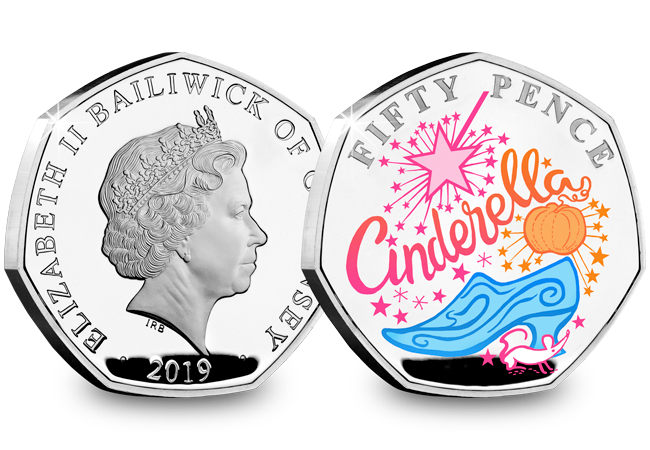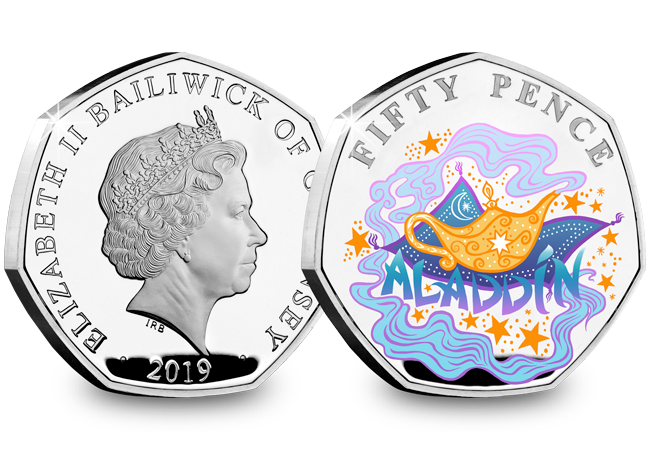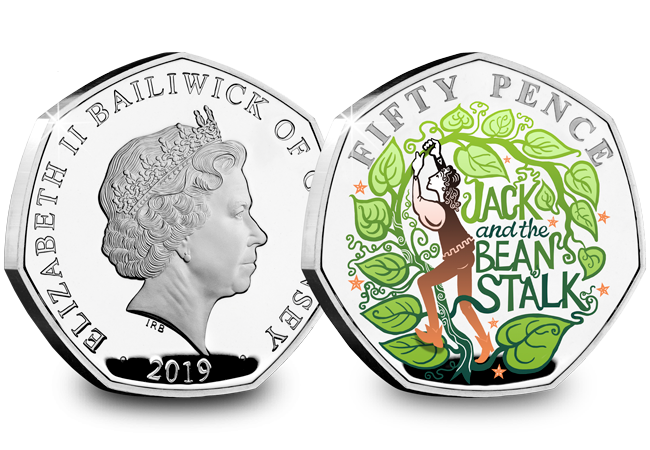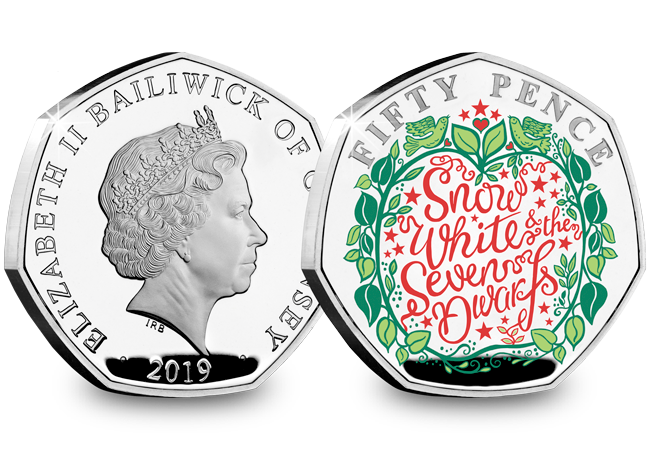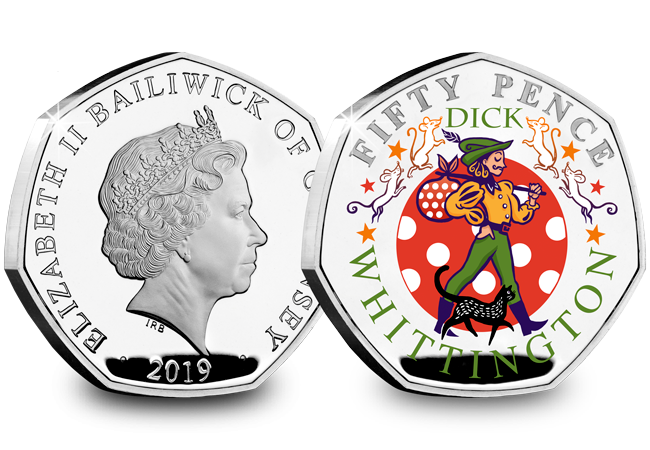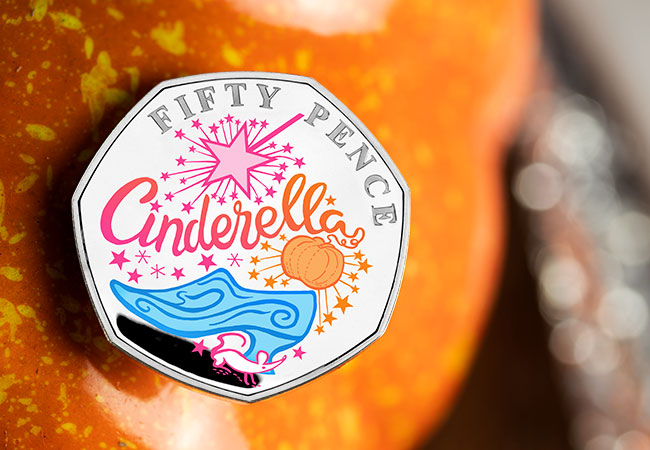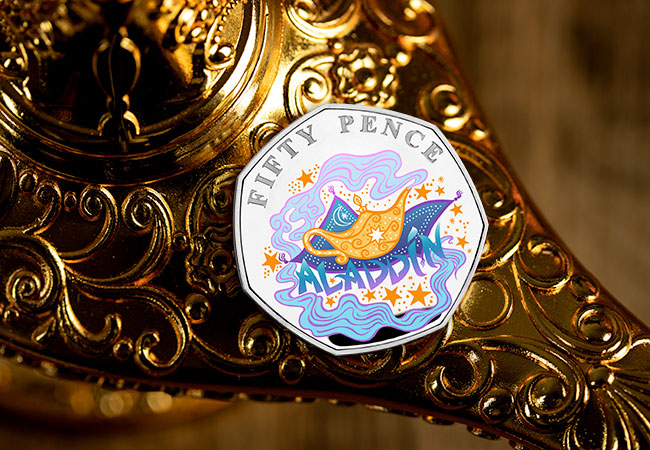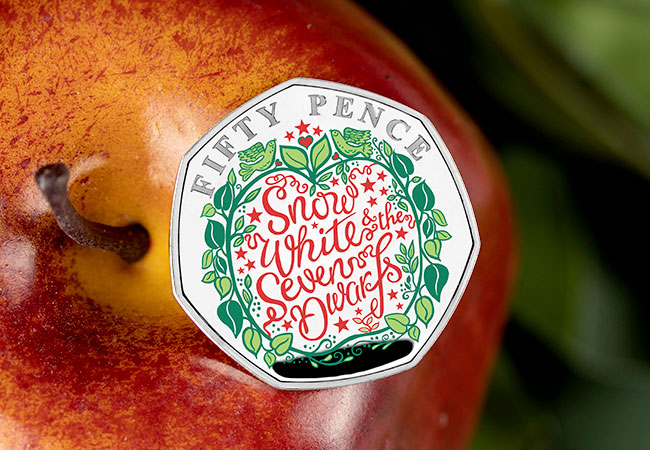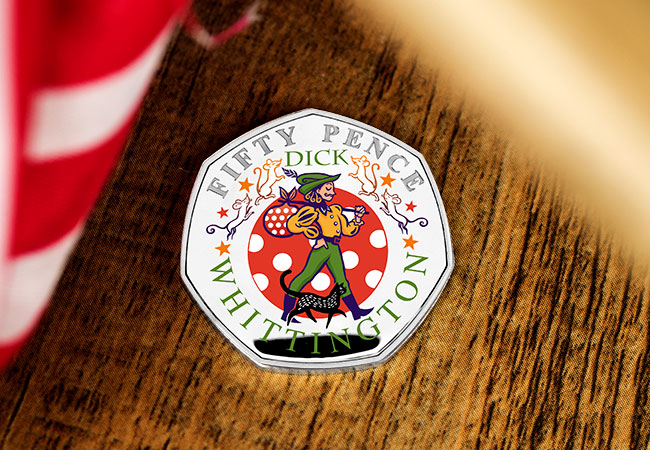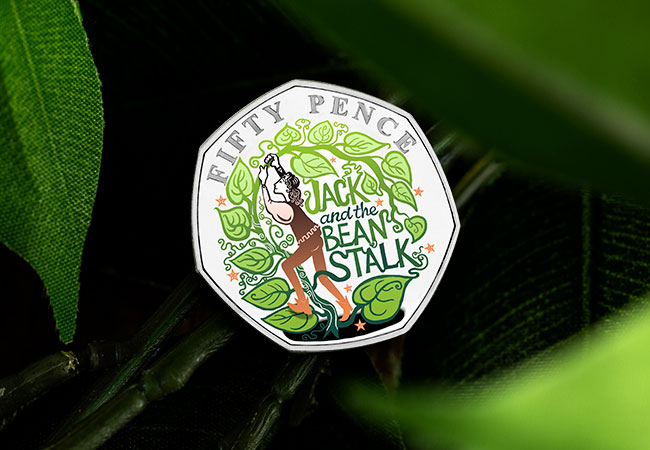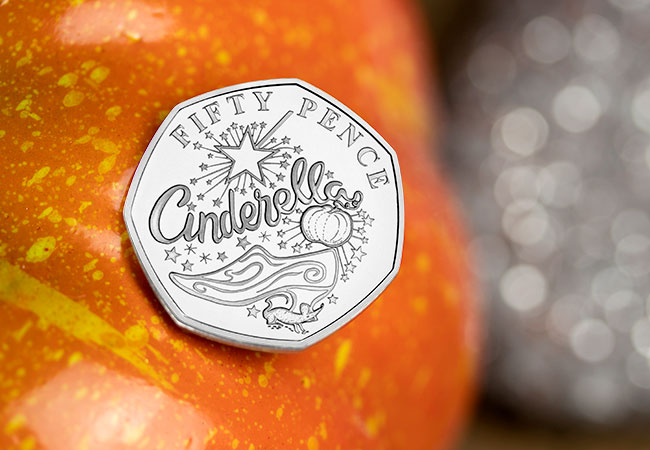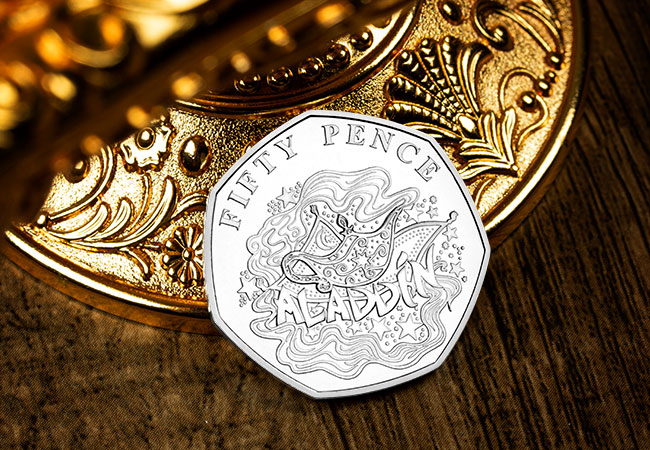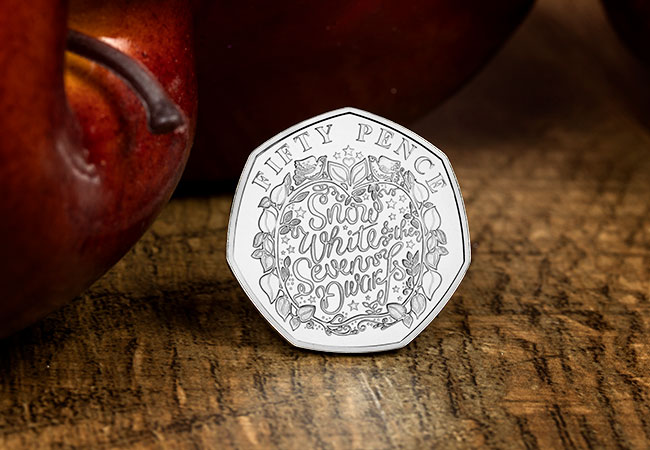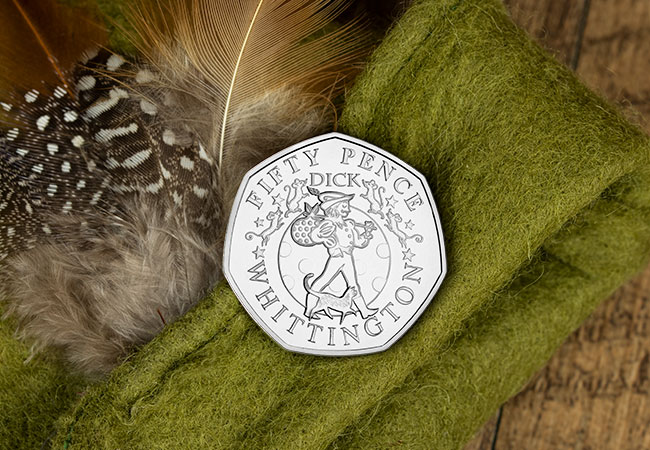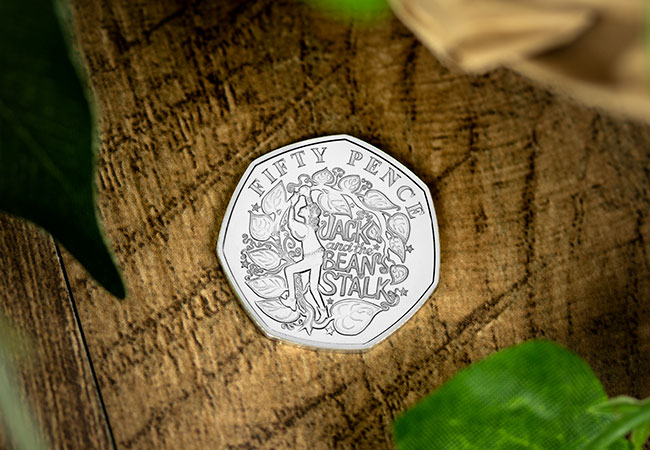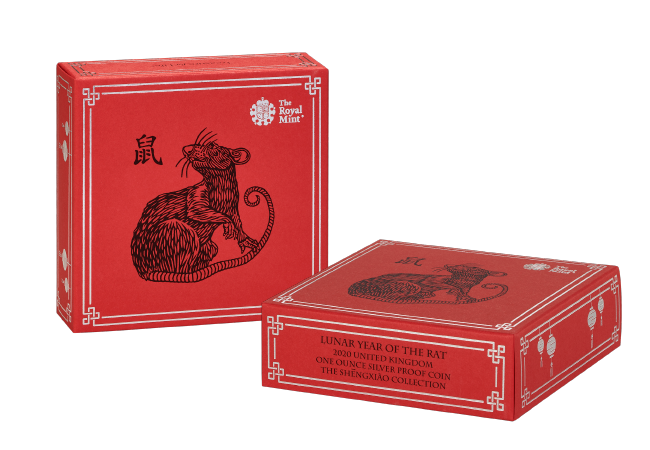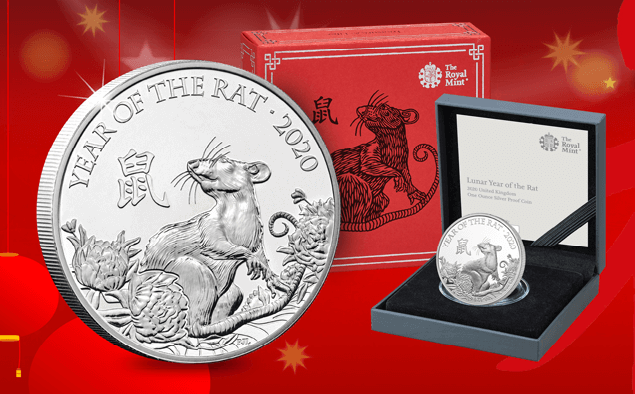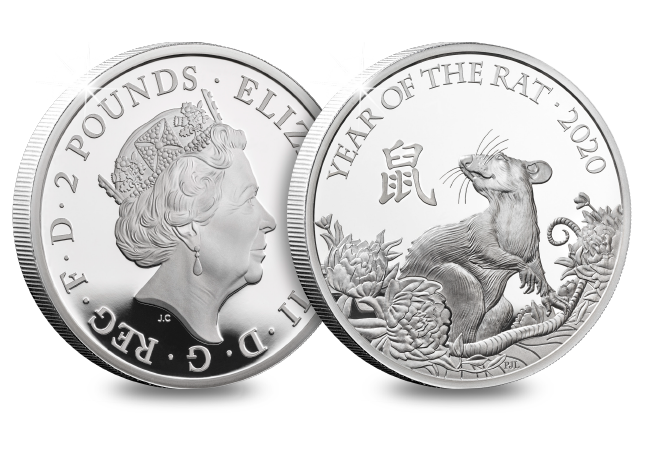Posts Tagged ‘Coin Collecting’
Curtains Up! FIVE Brand New Christmas Panto 50p Coins revealed…
The wait is finally over and it is with great excitement that we can reveal our brand new Christmas Pantomime 50p Coins with you all.
These amazing new 50p coins celebrate some of the most popular Christmas Pantomimes of all time, including: Cinderella, Snow White, Jack and the Beanstalk, Aladdin and Dick Whittington.
And what’s not to love! With Christmas just around the corner, young or old, is there anything more traditionally British than a family trip to the local panto?
Oh no there isn’t…
These are the first festive-themed coins to be authorised for release by the Guernsey Treasury and each has been fully approved by Her Majesty the Queen.
Whether you’re looking for the new centrepiece for your collection, you’re an avid 50p collector, a Panto fan, or looking for the perfect Christmas gift for a loved on – I’m certain you’ll love these as much as we do!
Get your sweets, take your seat, and let us tell you more about each of the specially commissioned designs featured on the WORLD’S FIRST Pantomime 50p coins. We hope you enjoy the show!
Bibbidi-bobbidi-boo… it’s Cinderella!
What could be more quintessentially Cinderella than a glass slipper? Encased in stars, this stunning design tells the story of how the Fairy God Mother makes Cinderella’s dreams come true – turning a pumpkin and mouse into grand stage coach and driver with a tap of her wand!
One of Aladdin’s 3 wishes should have been for this amazing new 50p!
This Aladdin 50p coin is guaranteed to transport you to a whole new world. And, if you rub the coin perhaps the Genie will appear out of the magic lamp that takes centre stage within the design. Featured on a floating magic carpet amongst the stars and Genie smoke, it captures the magic of Pantomime perfectly!
Fee fi fo fum… do I smell a Jack and the Beanstalk 50p coin?
This Jack and the Bean Stalk 50p takes coin designs to whole new heights! On here you can see Jack climbing up the giant beanstalk which sprouted after he managed to obtain magic beans from selling his beloved cow. Who knows what adventures greet him at the top…
Mirror, mirror on the wall is this Snow White & the Seven Dwarfs 50p the fairest of them all?
Mirror, mirror on the wall, which coin is the fairest of them all? I’d say this is a definite contender. The intricacies on this 50p are incredible, with the Snow White and the Seven Dwarfs text seamlessly intertwining into the vines that surround that ever so fateful apple. This is one that definitely has to be seen to be fully appreciated.
He’s behind you! It’s the Dick Whittington 50p coin…
Did you know that Dick Whittington has been a favourite subject of British pantomime since the pre-Victorian era? The coin depicts Dick Whittington as he begins his travels to London with his cat, Tommy Tittlemouse, in search of fame and fortune. This is guaranteed to be a hit with the more traditional Panto goers.
Importantly, these FIVE brand new 50p coins are only available to own as a complete set. None will be released individually. Interested? Well, you have two fantastic options…
First is as a complete set of Silver Proof 50p Coins, featuring the vibrant colour designs you’ve seen above. This set is strictly limited to just 2,019 and given the sell-out history of Silver 50p’s, they’re unlikely to be around for long. Find out more about these and secure yours today by clicking here >>
Then you also have the set available in superior Brilliant Uncirculated quality. The coins come presented in a full colour Presentation Pack, and would make the perfect Christmas gift for a loved one. Click here to find out more and order yours today for JUST £30.00 (+p&p) >>
Please note, demand for these brand new 50p collections has already been extremely high. Whether for yourself or as a Christmas gift for a loved one, if you’d like to secure one it is advised that you act quickly.
Smashing News! Wallace and Gromit are coming to The Royal Mint
I hope you’ve got some cheese (Wensleydale anyone?) and crackers to hand to celebrate the news that the iconic British animated duo – Wallace and Gromit – will be coming to The Royal Mint!
Not many details have been revealed yet, though we have our fingers crossed that the plasticine pair will indeed be featured on a UK coin.

In fact, later this year the cheery inventor and his faithful ‘Dogwarts’-educated canine companion will be celebrating the 30th anniversary of their very first stop-motion animation that’s become a classic – “A Grand Day Out”. And I’m sure you’d agree – a commemorative coin would be the perfect way to celebrate this milestone anniversary.
If you want to be kept up to date, and be the first to know about all things Wallace and Gromit related, then register your interest below. We’ll then email you as soon as we hear anything more from our sources.
In the meantime let’s have a look at what happened when another one of Britain’s best loved fictional characters came to The Royal Mint…
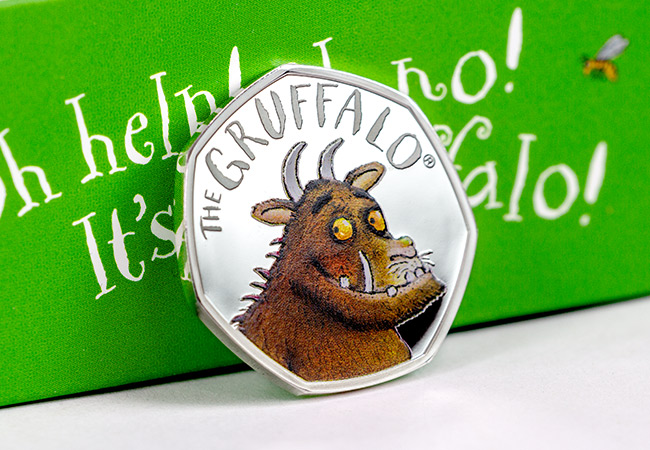
On the 23rd March the Gruffalo celebrated its 20th birthday, and to mark this landmark publication anniversary a brand new UK 50p was released. This was the first time ever the popular children’s book character had appeared on UK coinage.
To say the release was popular is an understatement, as fans and collectors alike were quick to snap up the coin. Collectors were so quick in fact that the silver and gold proof versions – with edition limits of 25,000 and 600 respectively – completely sold out at The Royal Mint within 12 hours of release.
This made it the fastest selling 50p to date!
No doubt the question on everyone’s lips now is what will happen when Wallace and Gromit arrive at The Royal Mint – will they be appearing on a UK coin and if so will we see another record breaking sell-out? But perhaps the biggest question of all – will it be made of cheese?
There’s only one way to find out – register your interest below!
What do a dragon, tiger and rat all have in common?
We’ve all heard of the zodiac, and have probably on more than one occasion checked our daily horoscope in the hope it will reveal what the future holds. When I sat down to write this blog I was buoyant in the revelation that my day was going to be “filled with love and joy”.
But perhaps lesser known in Western culture is the Chinese Lunar Calendar and the 12 animals that represent it.
The Chinese Lunar Calendar
More commonly known as the Chinese Zodiac, it is believed the Chinese Lunar Calendar begun around 2600 B.C. and is related to the worship of animals in Chinese culture. Legend has it before departing to the next life, Buddha asked every animal on the planet to comfort him and the twelve animals (including the dragon, tiger and rat) that responded are now honoured in the lunar calendar that spans 12 years – one animal for every year.
Much like the Western Zodiac, your lunar animal sign depends when you’re born. And people born in specific lunar years are believed to have certain personality traits and characteristics related to their animal.
Turns out I was born in the Year of the Sheep – so I’m creative, compassionate and friendly. I’d say that’s fairly accurate, though I’m not sure I agree that I like to spend my money on fashionable things… you win some you lose some!
The incredible popularity of Lunar Coins
For over 40 years mints from around the world have celebrated Chinese New Year with Lunar Coins. These issues have turned in to something of an international phenomenon, to the point where the lunar theme is the largest ongoing coin programme on the planet.
Most prestigious mints have a lunar series, including Australia, Canada, and of course our own Royal Mint. With each selling millions of ounces of gold and silver coins each year inscribed with the year’s relevant lunar animal.
Collectors will snap these coins up for a variety of reasons. Some collect their own lunar animal, because they like the personal connection, others will collect a particular specification because it’s especially limited. Personally, I find they also make great birthday gifts for obvious reasons – my friends love them.
The Year of the Rat
The 25th January 2020 will mark the Chinese New Year, and with it the next lunar animal will be celebrated – the Rat.
The Rat is in fact the first animal in the Chinese Zodiac, and people who are born under the sign of the Rat are thought to be intelligent and quick-witted with rich imaginations.
If this sounds like you the odds are you’re born under the sign of the Rat. And this year your lunar animal will be celebrated on lunar coins around the world.
What’s more, The Royal Mint has just released their brand new Year of the Rat range, including what’s perhaps the most sought-after specification of all – the 1oz Silver Proof Coin.
Apparently Rats are known for taking good advantage of opportunities presented to them – so what are you waiting for, make sure you snap up your lunar coin today!
If you’re interested…
You can own the BRAND NEW Royal Mint Lunar Coin TODAY – the 1oz Silver Proof Year of the Rat coin.
This coin is sure to be the most sought-after yet because not only is the 1oz Silver Proof a key specification for collectors, it’s also got the lowest edition limit yet!
Click here to find out more and secure one for your collection today >>>

